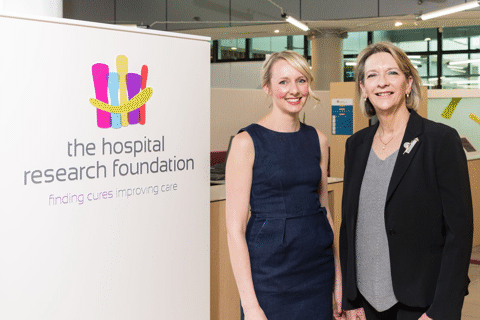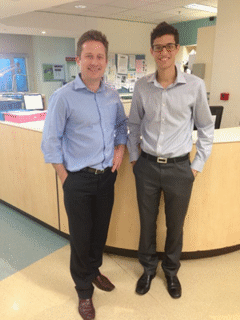|
|


Clinical ResearchThere are broadly 3 types of research projects occurring in the unit:
Unit Newsletters provide some background information: Locally initiated projectsLocally initiated projects are broadly categorised into human or laboratory-based studies. Human studies:The Critical Care Research Unit at the Royal Adelaide Hospital is acknowledged as a world-leader in the fields of nutrition, gastrointestinal function and glucose metabolism in the critically ill. Our research interests are predominantly clinically based. We have been fortunate and have had considerable successes in obtaining level-1 grant funding to support personnel and infrastructure required for these research programmes, which has resulted in a large number of publications and awards. An Honours year with us is well suited to medical students with interests in critical care, anaesthesia, endocrinology or gastroenterology. All previous Honours students have been first author on at least one paper published in a high impact journal, presented at a major national or international meeting, and have achieved First Class Honours. Our PhD programme is suitable for trainees in intensive care medicine who desire a career in academic medicine. Resource personnel: Medical Emergency Team and Hospital Outreach studies:The management of patients prior to admission to Intensive Care has been shown to be a major contributor to their outcome. A greater understanding of the complex events that occur prior to admission to Intensive Care, and earlier intervention during that period can have a positive impact upon patient outcomes as well as avoid unanticipated admission to Intensive Care. Our research has contributed to a better understanding of those complex events, their measurable impact upon patient outcomes and the assessment of possible interventions. Our research tends to be a combination of both qualitative and quantitative research and involves collaboration with other disciplines. We offer opportunities for medical undergraduate, vocational and postgraduate students. These opportunities have resulted in authorship on published manuscripts, conference presentations and completion of formal projects. Projects are also being undertaken as part of a Masters level postgraduate program. Resource personnel: Laboratory-based studies:Studies in sheep: The sheep laboratory has an international reputation and an outstanding track record, having produced at least 5 PhD graduates and attained numerous NH&MRC, national and local grants over the last 20 years. A large number of publications predominantly in the areas of cardiovascular, cerebrovascular and anaesthetic pharmacokinetic and pharmacodynamics have been produced. These studies have largely evolved using a unique chronically catheterised awake physiological sheep model that allows continuous measurement of drug concentrations and global and regional effects. We have also developed a sepsis sheep model. Studies are progressing looking at thyroid function and the pathology of renal failure in sepsis. Resource personnel: Dr Matthew Maiden Vasodilation in septic shock: In collaboration with the Molecular Physiology of Vascular Function Laboratory (University of Adelaide), and the Vascular Diseases and Therapeutics Research Group (Basil Hetzel Institute) the Intensive Care Unit is undertaking benchtop, small animal and translational research into the molecular mechanisms of pathological vasodilation in septic shock. We complement functional vascular preparations with a range of molecular biology techniques. Resource personnel: Dr Ben Reddi Formal Projects for FCICMRegistrars are required to complete a formal research project as part of their training for the FCICM. This activity is fully supported by the research group at the RAH ICU. Resource personnel:
Postgraduate Medical StudentsPostgraduate studies (Honours, Masters or PhD programmes) can be undertaken via the affiliated Discipline of Acute Care Medicine (University of Adelaide– link to page).
Previous Honours students include:
Current Honours students are Mr. Shane Selvanderan and Mr. Simon Tan Resource personnel: Prof Marianne Chapman |
 'In 2012 I spent my Honours year in the Critical Care Research Unit at the Royal Adelaide Hospital and was supervised by Adam Deane. I enjoyed working at the physiological extremes that are measured in the Critical Care Research Unit. I was supported to present my findings at the major international diabetes meeting, which was held in the USA, and was first author on a paper published in the highest-ranked diabetes journal. My Honours year was pivotal to subsequently being awarded a Rhodes Scholarship' (Mahesh Umapathysivam)
'In 2012 I spent my Honours year in the Critical Care Research Unit at the Royal Adelaide Hospital and was supervised by Adam Deane. I enjoyed working at the physiological extremes that are measured in the Critical Care Research Unit. I was supported to present my findings at the major international diabetes meeting, which was held in the USA, and was first author on a paper published in the highest-ranked diabetes journal. My Honours year was pivotal to subsequently being awarded a Rhodes Scholarship' (Mahesh Umapathysivam)